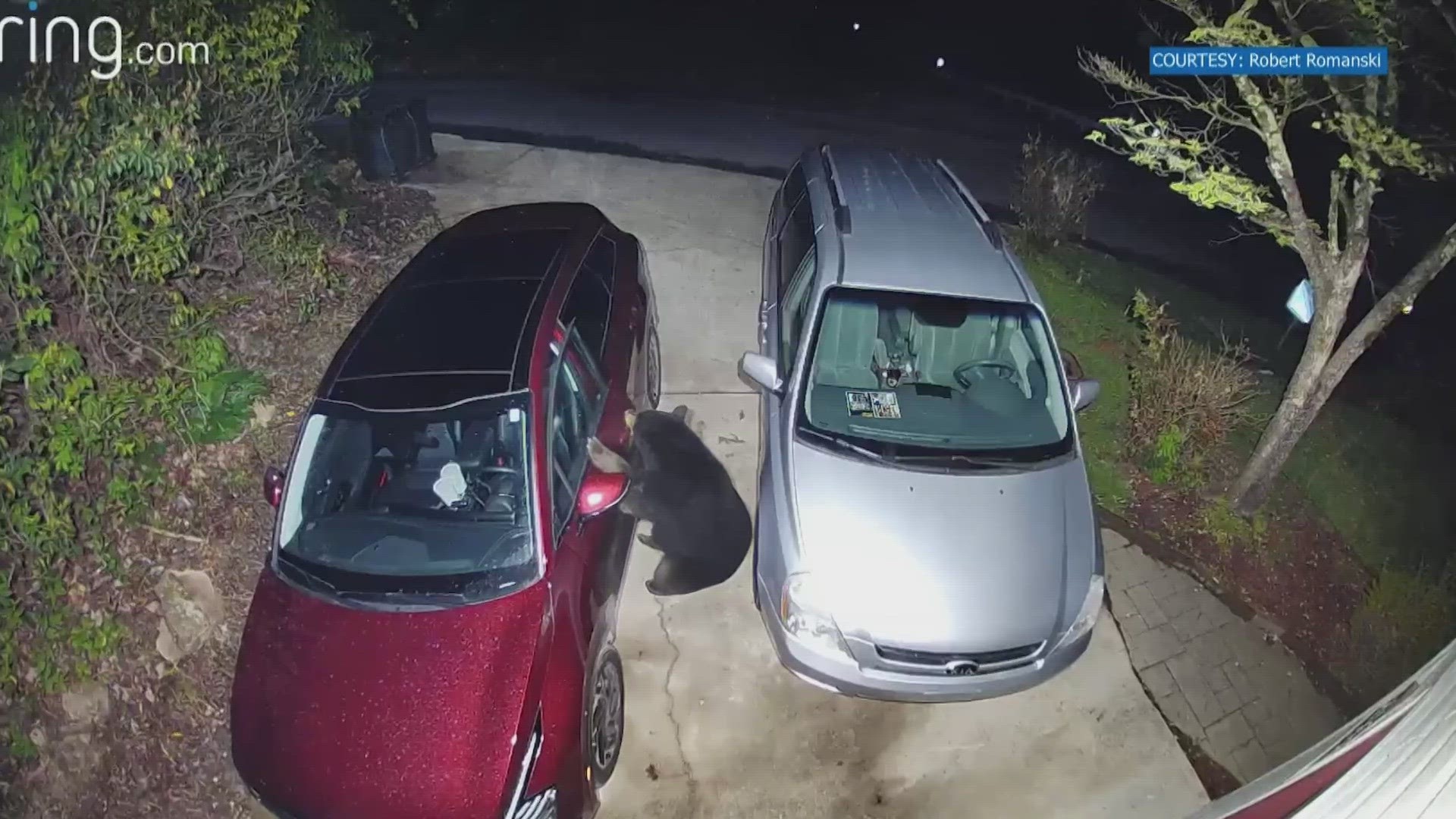KNOXVILLE, Tenn. — Summer is approaching, which means creatures of all kinds in East Tennessee are wandering across the region. Some of those creatures include bears, which are common sights in some areas.
The Tennessee Wildlife Resources Agency said their hibernation usually ends in late March and early April. However, calls about bears in suburban and urban areas tend to peak in June and July for two reasons.
They said the early-summer months are usually the breeding season for bears, and males may travel far in search of females. While scouring for a mate, they may also encounter human dwellings. Secondly, young bears who leave their mothers for the first time may prowl around the area searching for a suitable home range. Those bears may be lured by the smell of human food.
Additionally, natural food sources may not yet be totally available.
"It's definitely the season for bear movement," said Matt Cameron, a spokesperson for the TWRA. "The summer berries aren't ripened yet. Generally, that would be cherries, blackberries, raspberries, blueberries, and all sorts of other different wild berries that bears depend on as a primary food source in the summer just aren't ready for them yet."
He said those food sources would likely not be ready for bears until at least the end of June. He said as those food sources come into season, calls about bear sightings usually decrease.
In the meantime though, people should follow Bearwise tips and stay safe. For example, Cameron said that people should keep their dogs on a leash while taking them for walks.
"Bears and dogs seem to be a problem, we have seen a lot of aggressive bear activity due to a dog. The dog's going to defend its owner naturally, and it's going to bark. It's going to be aggressive towards a bear, and that sometimes causes the bear to attack the dog since it feels threatened," he said. "Keep your dog controlled and hopefully, the bear will go the other direction."
If people see a bear by themselves, they should make sure to keep their distance while enjoying the moment. They should not try to approach it or feed it. And if a bear approaches someone, they should back away slowly. Only be aggressive if the bear continues approaching, to try intimidating it to leave.
He also said while people should call the TWRA about bear sightings, crews may not always relocate a bear. They usually relocate bears if they cause significant problems or if they pose a threat to human safety.
"Thirty percent of the time, when we relocate a bear, that bear is going to die within three months. People think, 'Oh, TWRA can just come and get it and move and it will live happily ever after.' The data show that bears that are relocated are more likely to get killed than bears that are just left alone and find their own way out of an area, where we think they don't belong," he said.
Cameron also said bear sightings in Knoxville are becoming more common. Over the past decade, he said the TWRA has received more reports of them.
"It shouldn't come as a great surprise that we do have bears here. We think this is the city, and they don't belong here. But if you think about East Tennessee as a whole, this is bear country," he said. "As the human population continues to grow and the bear population continues to grow, they are going to come down and we are going to come in contact with them more often."
He said that since 2020, the TWRA has taken around 70 bear calls in Knox County alone. He said people who are particularly worried about bears in the area can purchase bear spray as a repellant.
"The chance of being killed by a bear is very slim, or even being attacked by a bear," he said. "We got to learn to live alongside them because the bears aren't going anywhere and humans aren't going anywhere."
Anyone who spots a bear can report it to the TWRA through an online form. They also have more information about black bears online.

